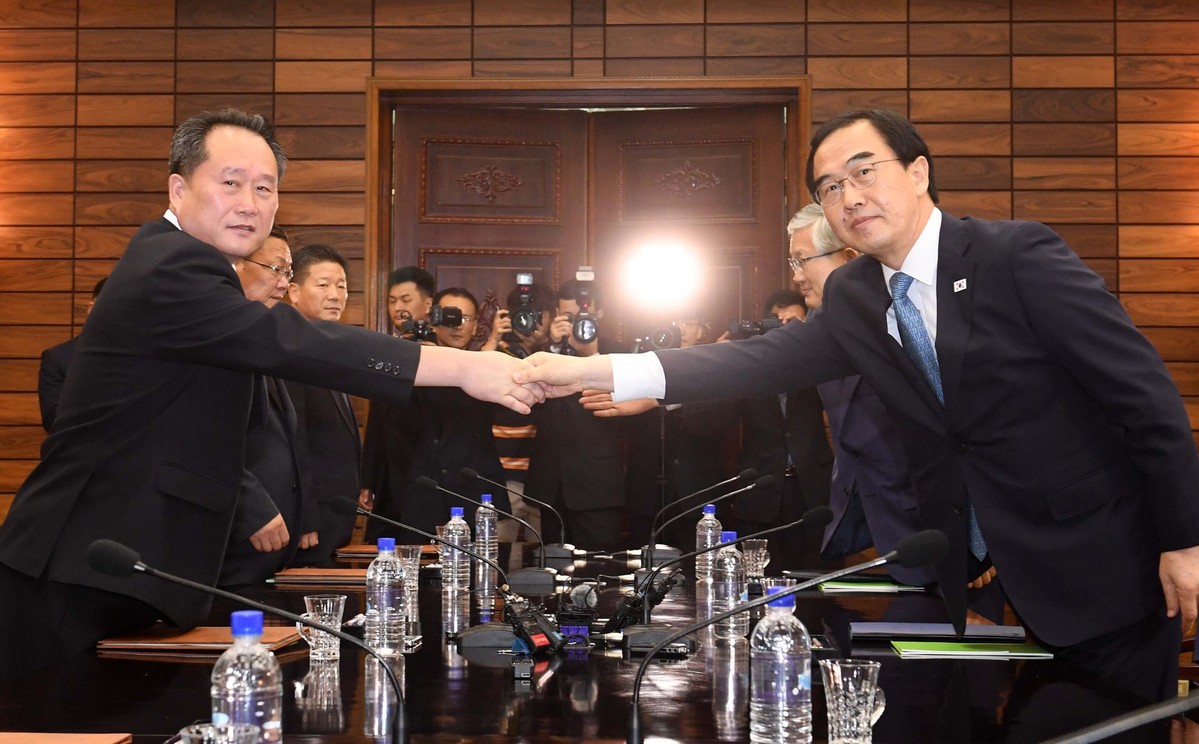Moon hard-pressed to bridge US-DPRK expectations gap: China Daily editorial
China Daily | Updated: 2018-08-13 20:51

So the sitting leaders of the two Koreas will meet again in September in Pyongyang.
The third inter-Korean summit in a little more than five months is a sign of the continuing rapprochement across the 38th Parallel, and it is expected to make substantial headway toward officially ending the Korean War, which concluded with an armistice in 1953, leaving the two Koreas technically at war.
But that is no insurance the seeds Democratic People's Republic of Korea leader Kim Jong-un and Republic of Korea President Moon Jae-in have sown together will grow into big trees, as Ri Son-gwon, the DPRK's chief delegate, wishes. Let alone a formal peace treaty, since even substantial further engagement between Pyongyang and Seoul may prove unrealistic without wholehearted endorsement by the United States, a key party in that war.
The present state of relations between Washington and Pyongyang, however, does not seem to support substantial progress in that direction. Despite the initial optimism following the high-profile meeting between US President Donald Trump and the DPRK leader in Singapore, the international community is yet to see any meaningful result, except for occasional rhetoric about hopes.
More recently, as that wave of enthusiasm ebbs, the two parties appear to have reverted to their decades-old blame game. While Pyongyang accuses Washington of a lack of sincerity and taking a "gangster-like" approach with its sanctions, the latter shows no intention of easing its stance of "maximum pressure".
President Moon has been praised for initiating and then salvaging the once impossible summit meeting between Trump and Kim. It will entail similar diplomatic skills for him to keep the two parties engaged in meaningful dialogue, and ensure that engagement produces tangible movement toward denuclearization.
Pyongyang demolished a nuclear test site and then a missile launch facility. But those constructive gestures have been lost amid the recent suspicions that it is resuming nuclear activities. Washington, on its part, while wanting Pyongyang to make more convincing moves to denuclearize, has offered little in the way of incentives for it to do so. Should this pattern persist, things very likely will return to how they were.
Moon's mediation efforts will not succeed unless he finds a way to bridge the expectations gap.
























